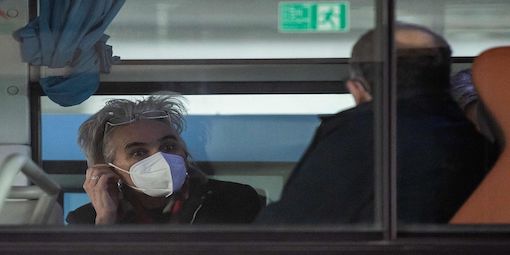China is posing all problems it could to stop World Health Organisation (WHO) begin its probe into the origin of Coronavirus pandemic, deepening suspicions on its role in the devastating outbreak.
China has placed the visiting WHO experts into quarantine for 14 days and denied two scientists entry into its Wuhan province who thus remain marooned in Singapore.
Interestingly, it’s been claimed that these scientists have been denied entry since they tested positive for Coronavirus. However, WHO claims that all members of the team had tested negative for the virus before they travelled to China.
The delay by China to finalize the visit fuelled concerns that Beijing was obstructing global efforts to trace the origins of COVID-19. The investigation is a critical step in understanding how the virus jumped to humans from animals so that another pandemic can be avoided. Getting answers will most likely be difficult.
After Visa delays, strict quarantine rules, and political stonewalling the continuous spike in the virus in China has also added complications in the investigations. After resisting demands from several nations to conduct research China in one way or other has hindered the investigation. For months, it has delayed the approval and when finally it allowed the experts to study the origin of the virus, the experts were promptly placed into the quarantine.
Critics say Beijing’s desire for control means the inquiry will most likely be more political than scientific.
“You want this investigation to be thorough, not subject to politicization, independent and transparent,” said Yanzhong Huang, senior fellow for global health at the Council on Foreign Relations. “But we have to be realistic.”
However, despite continuous rising issues, the WHO team said they will conduct a transparent study. Tarik Jasarevic, a WHO spokesperson mentioned that the organization is committed to investigating the origins of the virus and will “ask all countries to support these efforts by demonstrating openness and transparency.”
Moreover, tracing the virus will be a painstaking task for the team that has arrived in Wuhan. The expert team consists of professionals with decades of experience from Japan, Russia, Britain, Germany, the United States, and other nations.
Few critics believe that the virus occurred naturally in the animals most probably in bats but how much access the team will get into the markets of Wuhan will create the actual trouble. Until and unless the team is allowed to collect data samples, including contact tracing, environmental sampling, it would be nearly impossible for the experts to provide a comprehensive report of the investigation.
WHO has not clarified yet how long the project will take place as the agency still hasn’t released the detailed itinerary of the team.
China has been proactively questioning the widely-held view that the deadly outbreak broke out in a wet market in Wuhan where live animals, birds, and reptiles are sold and spread to humans. The market remained closed and sealed since early last year.
Chinese officials and state media have even insisted that the coronavirus did not in fact emerge from China—despite overwhelming evidence to the contrary—in order to reduce China’s blame for the global pandemic.
Both politicians and scientists are increasingly calling on China to make any investigations it is conducting into the matter more transparent.
WHO itself is under the radar of several politicians especially, the United States for playing softly on China. Before the team landed, Secretary of State Mike Pompeo said on Twitter on Tuesday: “The @WHO was corrupted by China’s influence, and bought cheap. WHO investigators still can’t access Wuhan — a year after the first cases were reported?”
Now the question is how will WHO operate in this heated political climate and still not be called biased.


